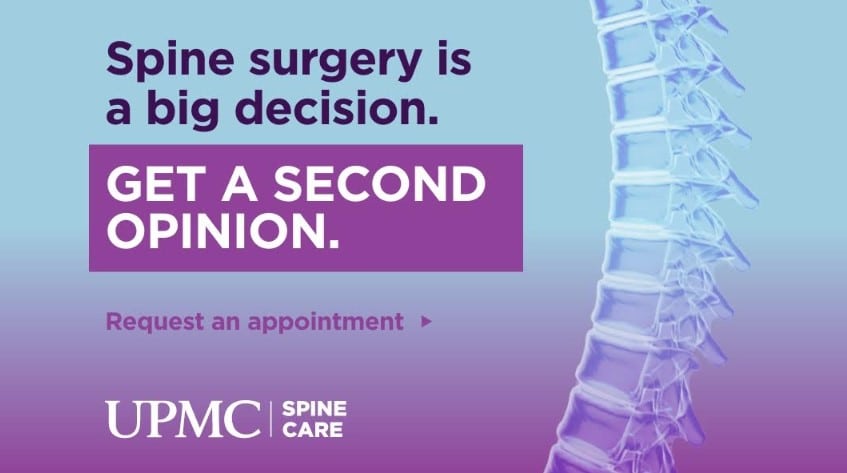UPMC Surgeon: Get Checked for a Hernia to Avoid Ending up on a Gurney

Scott Croll, M.D., FACS
General Surgery, UPMC
Do you have a bulge under your skin near your abdomen accompanied by a burning or aching that gets worse when straining? You may have a hernia.
Hernias happen when there is an opening between muscles or connective tissue. Tissues, intestines, or other organs push through these openings and cause the most common symptoms: a bulge under the skin.
Although hernias are formed the same way, there are several different types named for the different places they develop on the body. These types include:
- Umbilical Hernia – forms at the navel.
- Inguinal Hernia – forms in the groin.
- Femoral Hernia – forms below the groin.
- Epigastric Hernia – forms in the upper abdomen.
- Hiatal Hernia – forms in the diaphragm.
- Incisional Hernia – forms through a previous surgical incision.
Hernia Treatment
Usually, once a hernia has formed, the only way to treat it effectively is to fix the defect surgically. There are several surgical options: open repair, minimally invasive, or robotic. Your general surgeon will decide the best method for your personal case.
The main goal of a hernia repair is to close the opening between your muscles or connective tissue. This can be done simply by suturing it closed or by adding a mesh material. This is added for extra support in the weakened area where the hernia formed. Hernia repairs also prevent strangulation, which is when bowels or other tissues get stuck in the hernia and start to swell, cutting off the blood supply. If this happens, emergency surgery and possible bowel resection may be needed.
More recently, hernia repairs have become an outpatient surgery, a procedure that allows you to go home that same day. This is possible through minimally invasive methods involving several smaller incisions rather than one large incision. The use of robotics also aids in hernia repairs with even better precision.
How to Avoid Hernias
Hernias are formed for many reasons, and due to certain genetics, there isn’t always an option to prevent one from developing. Your sex is even a factor; for example, men are about 10 times more likely to develop inguinal hernias than women.
Other kinds of hernias may be avoided with prevention strategies. You may lower your need for hernia surgery by avoiding heavy lifting or straining after getting an incision, not smoking to help wounds from surgeries heal properly, keeping your diabetes under control, and maintaining a healthy weight.
If you think you may have a hernia, do not hesitate to call your doctor for an examination. It is best to be seen as soon as possible; the longer you wait, the more difficult the surgery could become.
Scott Croll, M.D., FACS, is with UPMC General Surgery and sees patients at the Health Innovation Center, UPMC Williamsport, 740 High St., Williamsport. To schedule an appointment with Dr. Croll, call 570-321-3160 or go to UPMC.com/GeneralSurgeryNCPA.




